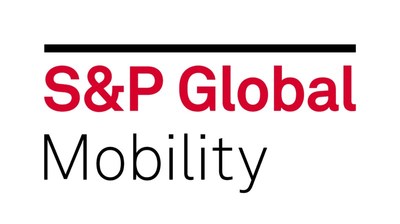Consumer Loyalty to Finance Companies Fell Sharply During Pandemic, according to S&P Global Mobility
Captives, banks, and many credit unions saw declines in return-to-market loyalty, and many have yet to recover.
Across new-vehicle lease and loan, more than half of all customers defected to a new finance source when returning to market, with the numbers trending steadily downward from the onset of the pandemic in early 2020 through the end of 2022, according to analysis by S&P Global Mobility and TransUnion.
Automaker captive finance companies in particular felt the upheaval in a turbulent marketplace, as inventory shortages made loyalty to specific vehicle brands also plummet.
"Nearly two-thirds of consumers have been switching banks," said Thomas Libby, associate director of loyalty solutions and industry analysis for S&P Global Mobility. "There's a nomadic element to this with households moving from one bank to another. That's less loyalty than the banks would like."
At a macro level, the microchip shortage from 2020 through 2022 tilted the supply and demand balance in the direction of sellers. Leasing took a particularly hard hit as the incentives that had driven low monthly payments largely evaporated - there was no need for distressed merchandise tactics, as dealers marked up rare sheet metal as they saw fit. As a result, consumer loyalties overall plummeted, as whichever dealers had inventory on site saw gains, prior brand preferences be damned. This carried over into the lending world as well.
"There was no need for any discounting," Libby said. "The dynamics of the market completely changed."
At the end of 2019, four of the top-ten captives - BMW Financial Services, Mercedes-Benz Financial, GM Financial, and World Omni Financial (Southeast Toyota Distributors' main lender) - successfully retained more than half their customers returning to market. But three years later, those numbers had dropped dramatically, with only GM Financial managing to keep even half of its customers, according to analysis from S&P Global Mobility AutoCreditInsight and TransUnion.
Even the captive that topped the 2019 chart — BMW Financial Services — managed to retain just
Ten Captives with Highest Financial Institution Loyalty | ||
Lender Name | 2019 Loyaty Rate | 2022 Loyalty Rate |
TESLA LEASING | 35.9 % | 54.0 % |
GM FINANCIAL | 55.9 % | 51.6 % |
SOUTHEAST TOYOTA FINANCE | 54.7 % | 48.7 % |
BMW FINANCIAL SERVICES | 59.6 % | 45.0 % |
FORD MOTOR CREDIT COMPANY | 49.3 % | 45.0 % |
TOYOTA FINANCIAL SERVICES | 51.2 % | 44.4 % |
40.4 % | 44.4 % | |
AMERICAN HONDA FINANCE CORP | 57.6 % | 43.5 % |
NISSAN MOTOR ACCEPTANCE CORP | 50.3 % | 43.5 % |
HYUNDAI FINANCIAL SERVICES | 49.7 % | 42.4 % |
Time periods: 2019 and 2022 calendar years |
Data sorted based on 2022 CY results |
Source: S&P Global Mobility – AutoCreditInsight with TransUnion® |
Although Tesla Leasing had a
Meanwhile, Mercedes-Benz Financial, which was second to BMW Financial in the calendar 2019 loyalty scores at
When asked for an explanation for their decline, a Mercedes-Benz Financial spokesperson said, "Leasing has decreased since the pandemic throughout the premium auto segment. Increases in lease customers' equity in their vehicles led to a large number of lease buyouts in 2022, and increased interest rates led to a high number of cash purchases. Both factors contributed to lower lease levels than in previous years. On the financing side, higher interest rates have also led to increased competition from traditional lenders, in particular credit unions and regional banks."
While all the major captives saw loyalty levels drop between calendar 2019 and 2022, some non-captives achieved gains - albeit with a far smaller return-to-market basis.
Some of the big gainers were Navy FCU and USAA Federal Savings Bank. But the largest of the Top 10 non-captive lenders, JPMorgan Chase, saw its 2019 loyalty rate fall from
Ten Non-Captives with Highest Financial Institution Loyalty* | ||
Lender Name | Loyalty Rate 2019 | Loyalty Rate 2022 |
SCHOOLSFIRST FCU | 40.5 % | 55.8 % |
NAVY FCU | 30.5 % | 41.9 % |
SUNCOAST CREDIT UNION | 30.6 % | 34.0 % |
STATE ECU | 30.0 % | 33.8 % |
USAA FEDERAL SAVINGS BANK | 30.1 % | 32.6 % |
AMERICA FIRST CU | 26.5 % | 30.7 % |
JPMORGAN CHASE | 37.9 % | 26.1 % |
CREDIT UNION LEASING | 14.8 % | 25.7 % |
SPACE COAST CU | 20.1 % | 24.9 % |
MID | 19.5 % | 20.5 % |
*Based on top 35 Lenders, which represents |
Time periods: 2022 and 2019 calendar years |
Data sorted based on 2022 CY results |
Source: S&P Global Mobility – AutoCreditInsight with TransUnion® |
"Captive finance companies command the leasing market because they are able to more accurately forecast residual values," Libby said. Pre-pandemic, the captives were able to artificially inflate residuals, making leasing a more attractive option for discount-conscious consumers, particularly among luxury brands. But as inventories shrank, that advantage faded.
Indeed, the rate of leasing dropped sharply downward - from
"The whole leasing business cratered because there were no longer any incentives," Libby said. "Basically, the dealers have had a huge amount of leverage because of the imbalance between supply and demand. That affected the lease-loans ratio to a huge extent."
While leasing penetration skidded, loyalty to finance institutions on the leasing side declined from
There were bright spots on the lease loyalty side in 2022. Both GM Financial and Ford Motor Credit Co. stood out, retaining
But as leasing slipped, the loan market grew hypercompetitive, Libby said: "Only one out of every five customers who return with a loan will go back to the same financial institution. That points out how incredibly competitive the loan market is. The independent banks are doing whatever it takes to get the business."
World Omni Financial Corp. was best at retaining its loan customers with
Finance institutions are fully aware of the comparative lack of loyalty on the loan side. Said Libby: "It's a self-fulfilling prophecy. Because they realize the customer is so likely to switch, they'll be exceptionally aggressive to get the business."
As pandemic disruptions have diminished, there are signs the market is shifting back toward some semblance of balance. Leasing penetration has crept back up to
About S&P Global Mobility
At S&P Global Mobility, we provide invaluable insights derived from unmatched automotive data, enabling our customers to anticipate change and make decisions with conviction. Our expertise helps them to optimize their businesses, reach the right consumers, and shape the future of mobility. We open the door to automotive innovation, revealing the buying patterns of today and helping customers plan for the emerging technologies of tomorrow.
S&P Global Mobility is a division of S&P Global (NYSE: SPGI). S&P Global is the world's foremost provider of credit ratings, benchmarks, analytics and workflow solutions in the global capital, commodity, and automotive markets. With every one of our offerings, we help many of the world's leading organizations navigate the economic landscape so they can plan for tomorrow, today. For more information, visit www.spglobal.com/mobility.
Media Contact:
Michelle Culver
S&P Global Mobility
248.728.7496 or 248.342.6211
Michelle.Culver@spglobal.com
![]() View original content to download multimedia:https://www.prnewswire.com/news-releases/consumer-loyalty-to-finance-companies-fell-sharply-during-pandemic-according-to-sp-global-mobility-301882542.html
View original content to download multimedia:https://www.prnewswire.com/news-releases/consumer-loyalty-to-finance-companies-fell-sharply-during-pandemic-according-to-sp-global-mobility-301882542.html
SOURCE S&P Global Mobility








